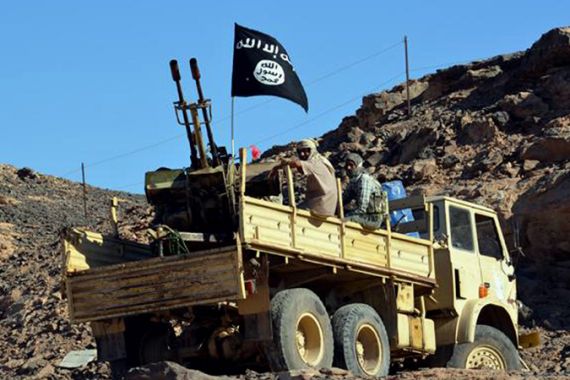UN: 5 staff members kidnapped in Yemen last year released
All ‘five colleagues’ who were kidnapped 18 months ago are in good health, spokesman for UN chief Antonio Guterres says.

The United Nations says five staff members who were kidnapped in Yemen 18 months ago have walked free.
In a brief statement on Friday, Farhan Haq, deputy spokesman for UN Secretary-General Antonio Guterres, said all “available information suggests that all five colleagues are in good health.”
Keep reading
list of 3 itemsUN food agency worker killed in Yemen
UN’s Yemeni oil tanker operation: What you need to know
“The Secretary-General is profoundly relieved that their ordeal and the anxiety of their families and friends have finally come to an end,” said Haq.
“The Secretary-General reiterates that kidnapping is an inhumane and unjustifiable crime and calls for the perpetrators to be held accountable. He also expresses his solidarity with other people still held against their will in Yemen.”
Haq said the freed men were Akm Sufiul Anam, Mazen Bawazir, Bakeel al-Mahdi, Mohammed al-Mulaiki and Khaled Mokhtar Sheikh. All worked for the UN Department of Security and Safety.
The identity of the kidnappers was not revealed.
In February 2022, suspected al-Qaeda fighters abducted five UN workers in southern Yemen’s Abyan province, Yemeni officials told The Associated Press news agency at the time.
When asked about the abduction then, Guterres’s lead spokesman, Stephane Dujarric, said, “We are aware of this case, but for obvious reasons, we are not commenting.”
Al-Qaeda in the Arabian Peninsula, or AQAP, has been active in southern Yemen for years. It is considered one of the global network’s most dangerous branches and has attempted to carry out attacks on the US mainland.
It has survived an intensive campaign over the last 10 years from the US military, the Saudi-Emirates-led military coalition, and the Houthi rebels, taking advantage of the chaos in Yemen, tribal sympathies, and large and empty swaths of south Yemen.
Kidnappings are frequent in Yemen, an impoverished nation where armed tribesmen and groups take hostages to swap for prisoners or cash.
Yemen’s ruinous civil war began in 2014 when the Iran-backed Houthi rebels seized the capital Sanaa and much of northern Yemen and forced the government into exile. A Saudi-led coalition, including the United Arab Emirates, intervened the next year to try to restore the internationally recognised government to power.
AQAP has since exploited the country’s years-long conflict to cement its presence.
In the past year, there has been a heavy focus on diplomatic efforts to seal an agreement between Saudi Arabia and the Houthi rebels.